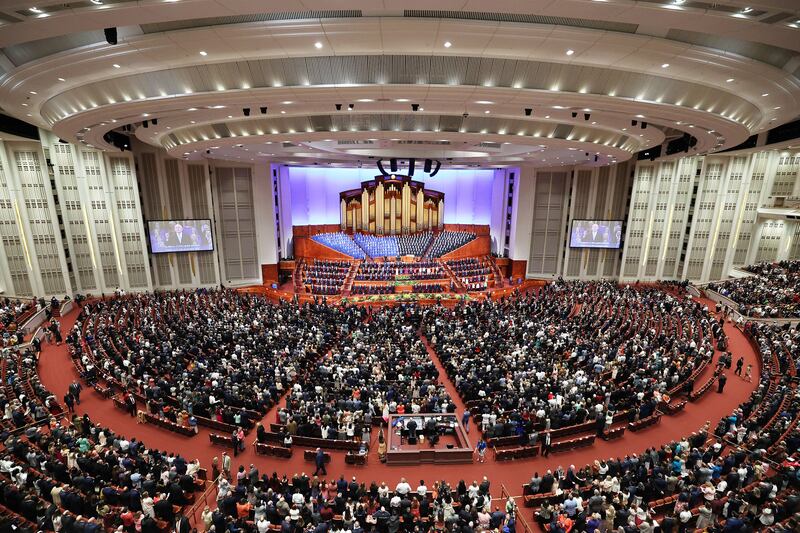Mike Carey and Joyce Beatty are the kinds of people you would expect to be friends. Both live in Columbus, Ohio. They frequently see each other at the airport and at neighborhood events. And, as it turns out, both are even members of Congress.
But they have one huge difference between them — the kind that would make you think of them as enemies. Carey is a Republican, and Beatty is a Democrat. Today, that’s like being from the Hatfields and McCoys or belonging to rival street gangs.
But, to their credit, Carey and Beatty not only haven’t let their politics interfere with their friendship, they have, according to CBS News, built a Civility Caucus that aims to inspire a more peaceful discourse in the nation’s capital.
This weekend will mark the convening of the 193rd Semiannual General Conference of The Church of Jesus Christ of Latter-day Saints (which owns this news organization). Church President Russell M. Nelson made a point at the last conference of urging people to become peacemakers.
It’s time for everyone to take stock.
“Vulgarity, fault finding, and evil speaking of others are all too common,” President Nelson said. “Too many pundits, politicians, entertainers, and other influencers throw insults constantly. I am greatly concerned that so many people seem to believe that it is completely acceptable to condemn, malign, and vilify anyone who does not agree with them.”
He urged people to make a conscious decision to spread peace, not contention.
“Contention is a choice,” President Nelson said. “Peacemaking is a choice. You have your agency to choose contention or reconciliation.”
The world is filled with examples of declining civility. A survey earlier this year by the American Bar Association found that 85% of Americans believe civility has declined over the past 10 years. It also found a scattershot of opinions about who could fix this, with 34% saying family and friends, 27% saying public officials and 11% saying community leaders.
President Nelson was more direct on that question, and more hopeful. People, he said, “can literally change the world — one person and one interaction at a time.”
It’s easy to find examples of this, if you look hard enough.
Carey and Beatty certainly are examples. At a time when coarse and vulgar language are heard all too often in the halls of Congress, they told CBS their caucus has grown to at least 20 House members. Of note, people are not allowed to join alone. They must come with a recruit from the opposite party.
That caucus isn’t the only such example in the House. The Problem Solvers Caucus also aims to find bipartisan solutions to problems and has succeeded in crafting some large bills, including a massive infrastructure bill earlier this year.
And there are other examples.
When Utah Gov. Spencer Cox began his term as president of the National Governors Association earlier this year, he adopted a campaign to “disagree better.” He emphasized that there is nothing wrong with disagreements. The key is to learn how to do this in a constructive and respectful manner.
“You never convince anyone by attacking them,” he told the Deseret News. “You actually convince them by trying to bring them along.”
Cox already gained notoriety during his 2020 election campaign by doing commercials with his Democratic opponent, Chris Peterson. The message? Both candidates could disagree without hating each other. It turned heads. The ads went viral.
Cox’s “disagree better” campaign has earned him attention from Time magazine, NPR, the Harvard Institute of Politics, The Washington Post and others. He’ll be on a stage at The Atlantic Festival Friday in Washington, D.C., spreading the message. It has made people think.
When hateful crimes are committed, police often talk about the danger of others committing “copycat” crimes. Evil begets evil.
But if that is true, the opposite is, as well. Small acts of kindness, cooperation and mutual respect can not only deflect bad feelings, they can multiply as they influence others. Lawmakers such as Beatty and Carey, and governors such as Cox can do much to change the tenor of public discourse and, by extension, the culture at large. But individual acts can have just as much, and perhaps even more, meaningful impact.
The approach of another conference weekend is a good time to examine how each of us is doing in that regard.

